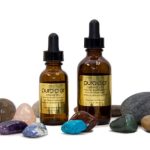Hormonal Imbalance Menopause Natural Treatment and Diet
Hormonal disorders produce the most troublesome symptoms in young or mature women, mostly during perimenopause and menopause: from frustration, irritability, difficulty concentrating, insomnia and depression to heart palpitations, hot flashes, night sweats, bone pain and emotional disorders.
In their more acute form, hormonal imbalances caused by menopause can lead to uterine fibroids, ovarian cysts, fibroid cystic fibrosis or nodules.
Contents
Menopause home remedies
1. Foot Baths with hoop flowers
Specialists recommend two alternative baths: one with cold water of 10 degrees, and one with hot water of 38 degrees. Add in a few Hoop flowers and soak your feet first in the warm water for 5 minutes, and then in the cold water for just 10 seconds. It is wonderful home remedy especially for hot flashes during menopause.
2. Beetroot
Eat beetroot in salads or as juice if you wish to gain a natural hormonal stimulation and improve the symptoms of menopause.
3. Soothing menopause tea
In 500 ml of hot water add 50 g of valerian root and 15 g of arnica flowers. Infuse it for 10 minutes and drink 1-2 cups a day for a re-balancing effect.
4. Red Vines
This is a miraculous cure for reducing heavy bleeding during menopause. Drink 3 cups of tea every day before each meal.
5. Herbal mix for migraines and melancholy
In 400 ml of hot water add 2 teaspoons of mixed herbs: buckthorn bark, winery and milfoil, 20 g of each plan. Infuse it for 10 minutes and drink a cup of tea in the morning and one in the evening.
6. Rosemary tea
Prepare an infusion of one teaspoon of rosemary per cup of boiling water. Drink about 3 cups, twice a day
7. Borage
This herb has sedative, diuretic and depurative effects. It fights hot flashes during menopause and helps eliminate toxins, while regulating both menopause and the andropause hormones. Drink 2 cups of borage infusion per day, prepared from 2 teaspoons of herb in a cup of boiling water. This tea has positive effects on: amenorrhea, abnormal uterine bleeding, inflammation of the ovaries or uterus, rheumatic gout, nephritis or cystitis.
Menopause diet – hormone and weight control
It is very important for menopausal women to avoid consumption of coffee, alcohol, refined sugar, margarine and sweets. These are harmful stimulants that cause estrogen and progesterone ratio disorders, weight gain and fluid retention in the body. From here to the occurrence of gynecological diseases is just a small step. Note that strongly flavored foods found in food stores today contain additives that disrupt hormonal balance.
Estrogenic foods
Menopausal women should focus their diet on more raw food, fiber and vegetable protein. Fibers work miracles in menopause. They can prevent fibroids. According to latest studies, foods rich in estrogen may counteract the emergence and development of uterine fibroids.
– Beans, lentils, peas, brown rice, soy milk
– Onions, celery leaves and dill – also have rebalancing effects on the endocrine system
– Whole grains: wheat germ, buckwheat, oat bran – combat nervous and digestive disorders, digestive and prevent colon cancer
– Sea buckthorn fruits and oil – are rich in antioxidants, vitamins A and E, which are essential for perimenopause, menopause and postmenopause
– Olive oil, flax oil, fish oil, natural sunflower oil, olives, honey, anise, caraway – they contain natural estrogen and prevent hormonal disorders and osteoporosis
– Nuts, almonds, anise fruit, berries, sesame seeds
– Carrots, cabbage, broccoli
– Egg yolk
– Selenium, zinc, coenzyme Q10, vitamin A, C and E




